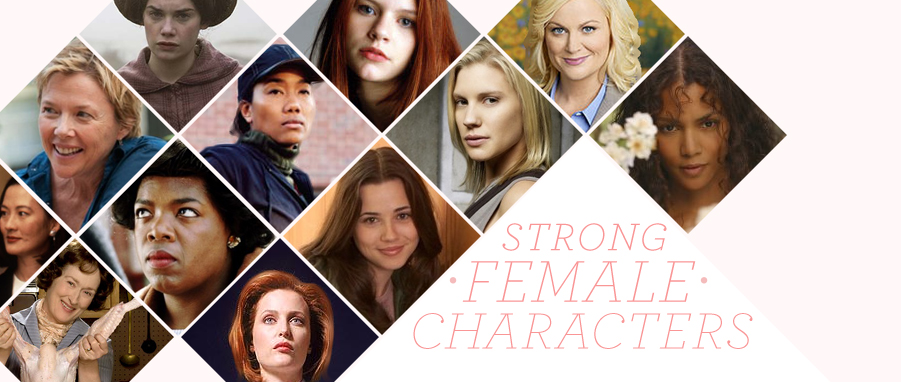When someone compliments me on my appearance, I don’t believe them. OK, not all the time—but sometimes. I fully realize that this is reactive and silly, and I know that my occasional lack of confidence can be especially irritating to my boyfriend, who compliments me more than anyone else—why can’t I just take it? What, do I think he’s lying? Analyzing my instinctual reaction, in conjunction with the discovery of this recent study by University of Nebraska – Lincoln professor of psychology Sarah Gervais, I realized that often, a positive impression of my overall image triggers a negative array of thoughts, each little thought corresponding to a single part of my appearance that I don’t like. That single part is measured against an abstract composite ideal of female beauty and, invariably, falls short. Loop back to brain: “How can this compliment be true in light of this [clearly imperfect body part/feature]?”
Gervais's findings are intriguing, and while the headlining statement—Men Are Seen as People, Women Are Seen as Body Parts!—is a little sensationalist, there rings some truth in this statement. The images of women and women’s bodies that inundate us in the media—be they celebrities, fashion models, or disembodied legs/lips/torsos—are perfect. More and more, they converge towards a singular, mythic body that is flawless, without fault, and unworthy of a single criticism. What this does for women who don’t have that body (read: pretty much everyone, including most celebrities and fashion models) is inconclusive, but I’m willing to bet it's pretty negative in the aggregate.
Recently, former Us Weekly editor Janice Min wrote about her struggles with the unrealistic post-baby weight loss expectations that she believes are culled from media representations of celebrities. She realized that, when she had her baby, shedding pounds at celebrity-rate was close to impossible, especially considering the coterie of assistance most celebrities have at their disposal (trainers, dieticians, stylists, money). Jezebel was correct in pointing out the irony that this was coming from an Us Weekly editor—and not just any editor, but the one almost principally responsible for making post-baby weight loss celebrity stories in-demand over the course of the 2000s.
Considering Min's complaints (and her resulting diet book “for real women”), I’m stuck on a quote from a Daily Nebraskan story on Gervais’s study. According to both Michael Goff, senior lecturer in advertising at Lincoln, and Jan Deeds, director of the Women’s Center, media is merely a reflection of our subconscious objectification of women and not its cause. “Advertising doesn’t do anything magical with that (process),” Goff says. “It just exploits it.”
This feels like incredibly wishful thinking. If advertising isn’t the cause, that implies its blamelessness. Then what is the cause? Society? The dominant culture? The male hegemony? Is not advertising a part of society, a part of culture? It is certainly one of the most visible, most visual, and most recycled elements of our culture. How can the images that it continues to reproduce be blameless in our construction of gendered images and, consequently, our own self-image? If anything, these things are cyclical, absent of a singular “root cause”. I’d like to lay at least some of the blame at the feet of ad execs and women’s magazine editors.
I’ll end on this note. On “Project Runway” this week—an exploitative reality show that provides a window into the image-obsessed fashion world and uses stick-thin, pliable models and that I nevertheless absolutely love watching—the designers were challenged to create looks for “real women” who needed a makeover. Ven, a 27-going-on-50-year-old male designer with, let’s be honest, a bit of a paunch, was dismayed that he got the “largest” woman, and complained to anyone who would listen about how it was so unfair that he, a designer of women’s fashions, should have to work with proportions like these. When Tim Gunn asks what size his client is, Ven rolls his eyes and says, “I don’t know—a 14?!” Then he describes her proportions as “off.”
When we create an impossible ideal, and when that ideal is hammered into our consciousness by the fashion world, by magazines, by celebrity photo shoots, and—very often—by post-production manipulation, we all end up being “off,” and we all feel it. If advertising and pop culture are a reflection of our values as a society, then our values as a society are also reflections of our intake of advertising and pop culture. The cycle is end-able.

